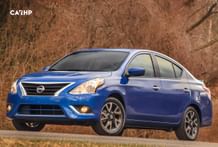The Toyota Corolla is a family car that has been in the garages of numerous families across the States. The sedan works wonders for the Japanese manufacturer, selling more than 300,000 units for 5 years straight. The line-up starts at $18,500 and goes against the Chevrolet Cruze, the Honda Civic, and the Hyundai Elantra. The sedan is a hot-selling option but also gets a lot of issues reported on NHTSA. The most common issues include airbag deployment issues, automatic headlamp focusing issues, jerky transmission operation, and a spongy brake pedal. Adding to this are 3 recalls and a couple of open investigations regarding airbags. Let’s see if the sedan stands up to its reliable name and what issues the owners have to face with their purchase.
2017 Toyota Corolla Problems
Electrical System:
- Headlight inconsistencies: The Toyota Corolla headlights are a massive headache for the owners. There are many issues reported to NHTSA including the lights turning off and affecting the visibility. Many people have complained about the low output of the range-topping headlight setup. People constantly nag about how inadequate the lights are during night driving and in the bends. In many cases, the automatic high beams stop functioning and reduce the overall visibility.
- Instrument cluster issues: Many people report the instrument clusters to stop working at random. The complainants report the speedometer to go null and not report any speed reading. The odometer also stops working and does not add to the overall mileage. In a handful of cases, there were no warning signs but nothing serious happened.
- Power windows and door lock issues: The aforementioned components go bad after just 30,000 miles on the odometer. People have reported this issue to be recurring even after a complete replacement of the unit, despite the recurring % being too low to be bothered.
Mechanical issues:
- Transmission issues: The Corolla CVT transmission has a lot of complaints registered with the NHTSA. People complain about the transmission lagging while accelerating, causing issues in slow-moving traffic. In some cases, the gearbox surges the car forward and causes collisions with the vehicle in front.
- Spongy brake pedal: The Corolla brake pedal feel deteriorates with the numbers increasing on the odometer. The brake pedal feels spongy and the driver has to apply more pressure to make the car stop successfully. The brake pedal issues do go away after the car’s brakes are bled at the dealerships.
- Noisy suspension mounts: Many people claim the suspension of the Corolla makes grinding noises after nearly 50,000 miles on the odometer. The suspension mounts are replaced/oiled/repaired as a remedial step.
Exterior issues:
- Windshield bubbling: Many people claim the perimeter of the windshield bubbles up and causes air to leak in the cabin. This weakens the overall bond of the windshield and causes headaches during long drives. In a handful of cases, the windshield cracked due to the weak integrity and affect visibility.
Safety issues:
- Airbag deployment issues: The Corolla airbags don't deploy on impact, causing injuries to the occupants inside. The issue gets a notch worse when the occupant detection system doesn’t detect the occupant and disables the airbags.
2017 Toyota Corolla Recalls
|
S. No |
Date |
NHTSA ID |
Issues Noticed |
Additional Remarks |
Remedy |
|---|---|---|---|---|---|
|
1. |
May 2, 2017 |
17V295000 |
Tires |
Improperly adjusted air pressure in the spare tire may cause issues while driving, if equipped. |
Gulf States notified the owners and initiated the recalls on June 15, 2017. The dealerships inspected the spare tires and adjust their pressure. Toyota’s internal number for the recall was 17R2. |
|
2. |
June 28, 2019 |
19V503000 |
Equipment |
An incorrect load capacity carrying modification label may cause unintentional overloading, increasing the risk of a crash. The affected vehicles also fail to comply with FMVSS Number 110, “Tire Selection and Rims”. |
SET notified owners and initiated the recall on August 23, 2019, and provided the correct label. The dealerships will install the correct label. Toyota’s internal number for the recall was SET19A. |
|
3. |
January 17, 2020 |
20V024000 |
Airbags |
A malfunction in the airbag electronic control unit (ECU) may disable the airbag deployment and the seatbelt pre-tensioner, increasing the risk of injury in a crash. |
Toyota notified owners and initiated a safety risk announcement on March 2, 2020. A second letter was issued between March 16, 2020, and June 27, 2020. Toyota’s internal codes for the recall are 20TB03, 20TA03, and 20TA05. |
Should you buy the 2017 Toyota Corolla?
The 2017 Toyota Corolla is a tempting offer and has won many hearts along the way. People love the car with all things on offer but the issues might raise an eyebrow or two. The issues aren’t something to be bothered much about but do cause a lot of inconveniences. The main issue lies with the airbags but the manufacturer was prompt in issuing communications to the dealerships for a quick remedy. Said this, the sedan makes a very good choice for the people who want an on-point commuter, even as a pre-owned option.











